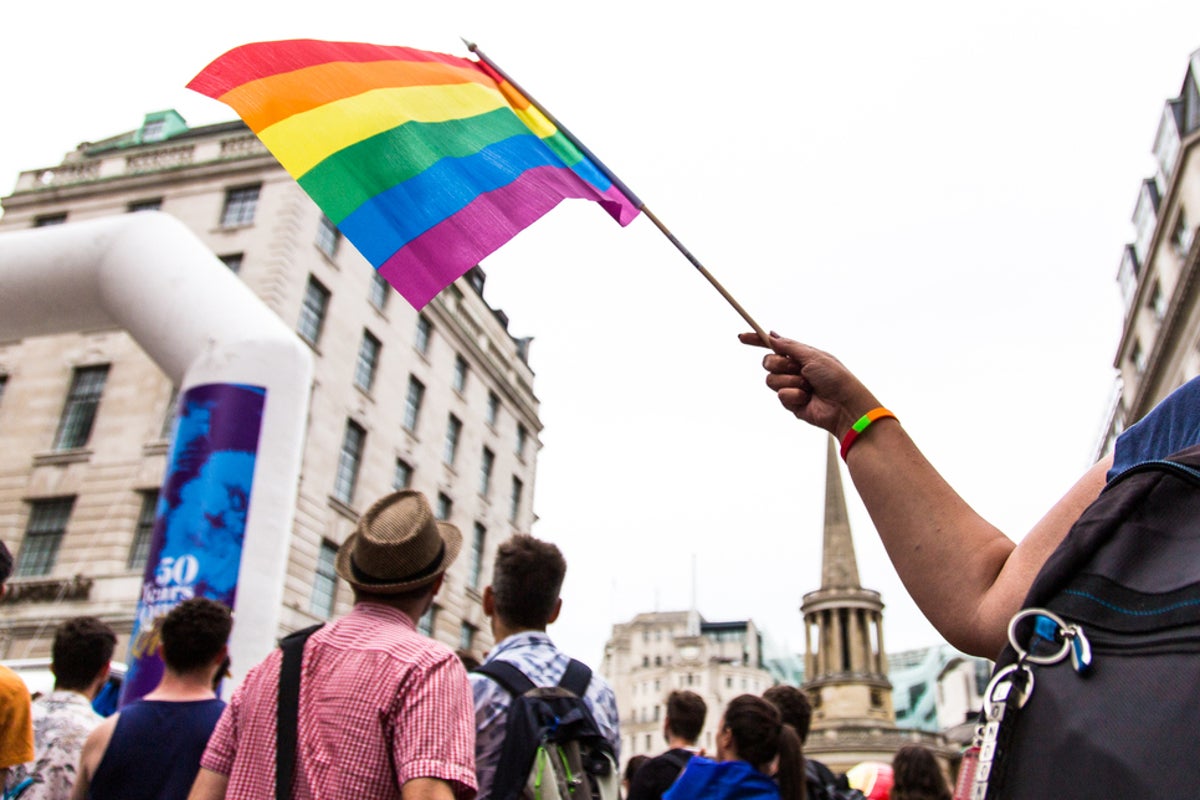A campaign group has launched legal action seeking to ban civil servants from wearing rainbow lanyards, endorsing Pride events and using preferred pronouns in public-facing email signatures.
The Christian Institute has claimed that civil service “endorsement” of LGBT Pride “breaches rules on impartiality” and is “clearly political”.
In a letter sent to the government before launching its action, the charity said it is seeking a judicial review of staff participation in Pride events.
The action has prompted criticism from LGBT+ campaigners who said, if successful, efforts to roll back rights will take the UK “back decades”.
Simon Calvert, deputy director of The Christian Institute, said it was “inappropriate for civil servants to be officially endorsing Pride”.
He added that he had been “shocked” by civil servants wearing rainbow lanyards in meetings, which he feels “gives the impression that their minds are closed” on alternative views. “It certainly does not communicate the kind of neutrality that taxpayers expect of civil servants.”

The civil service code states that all employees are expected to carry out their roles with “integrity, honesty, objectivity and impartiality”.
The action has concerned LGBT campaigners, who described it as “nothing less than a fundamental attack on inclusion, freedom of speech, and democracy”.
Jess O’Thomson, of the Good Law Project, said: “We are seeing a concerted effort to roll back LGBTQ+ rights in this country. If these efforts succeed they will take us back decades. It’s nothing less than a fundamental attack on inclusion, freedom of speech, and democracy. We must not accept it.”
A government spokesperson said: “The civil service is committed to an inclusive environment for all staff, boosting productivity and opening up opportunities across the country.”
The charity’s action comes after a High Court judgment effectively banned uniformed police from taking part in Pride parades.
The judgment, handed down last month, ruled that officers were wrong to have taken part in Newcastle’s Pride parade last year.
The case was brought by Linzi Smith, who described herself in court documents as a “lesbian who is ‘gender critical’”, who “believes that a person’s sex is an immutable characteristic”. She argued that police breached their impartiality obligations by taking part in the event and appearing under a banner supporting transgender people’s rights.

The judge, Mr Justice Linden, agreed with her and ruled that the Chief Constable of Northumbria Police, Vanessa Jardine, had acted unlawfully when she allowed uniformed officers to take part in the event last year.
Reaching his decision, the judge said participation was likely to be seen as “expressing the support of the head of the force for the views and the cause which the march sought to promote” and “therefore as indicating the position or perspective of the force as an organisation”.
The Independent has contacted the government for comment.




